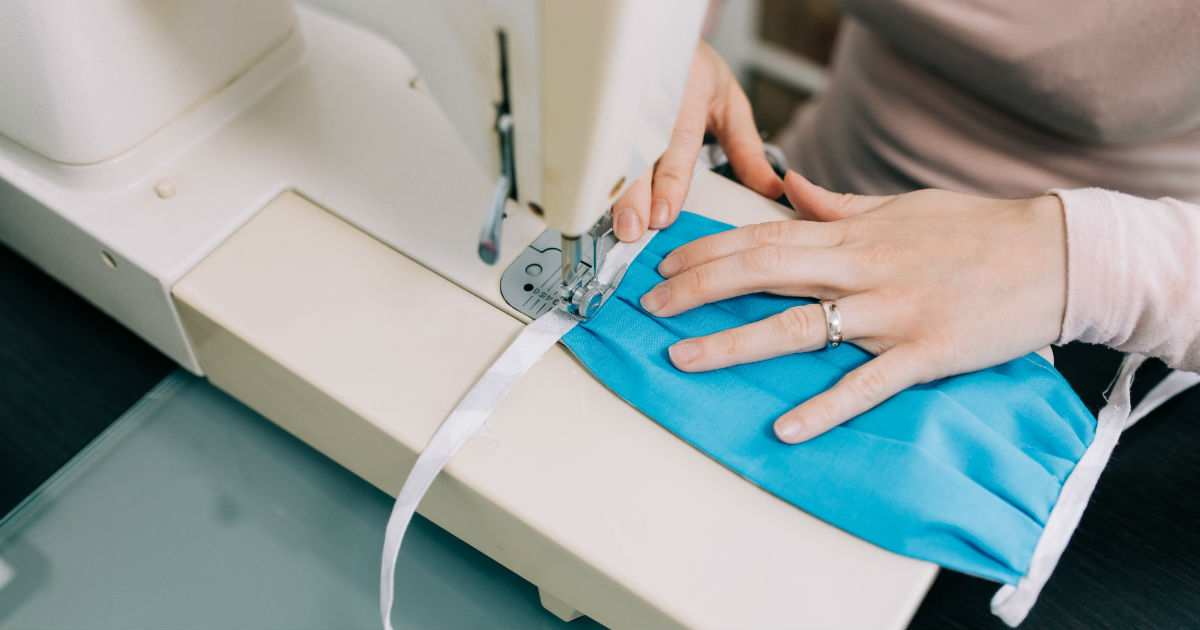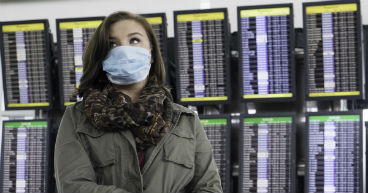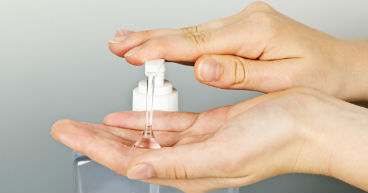
Update: The U.S. Centers for Disease Control and Prevention (CDC) now recommends everyone wear cloth face coverings in public places, such as grocery stores, where social distancing may be difficult. The CDC says these coverings may help slow the spread of COVID-19 by people who may have the virus, but are not yet exhibiting symptoms. The agency suggests making masks from old clothing or other household materials, but it does not recommend using surgical masks or N95 respirators, since those supplies are needed by health care workers.
As COVID-19 spreads and hospitals across the planet become overwhelmed with patients, health care workers are facing severe shortages of personal protection equipment (PPE), especially surgical masks and respirators, but also gowns and gloves. U.S. Surgeon General Dr. Jerome Adams this week said shortages of personal protective equipment may last for several weeks, especially in areas hardest hit by the virus.
Recognizing the shortage of protective gear vital to keeping hospital workers safe, Americans have stepped up in a big way. Major U.S. corporations have donated millions of masks. Nail salons and spas, many closed during the outbreak, are giving their masks and gloves to hospitals. And the online community is reaching out to hospitals offering to make and donate masks.
Cancer Treatment Centers of America® (CTCA), for example, has fielded a number of requests from generous groups and individuals wanting to help in this time of need by offering to make hand-sewn surgical masks. As many other hospital systems are doing, CTCA® is embracing the philanthropic, community spirit at the heart of the offers and welcome handmade masks—while putting procedures in place to make sure they meet safety specifications.
“It is amazing how we come together as a community to support cancer patients and health care workers,” says Jeffrey Metts, MD, Chief of Medicine at our hospital in Atlanta. “The patients, the providers, the nurses, the technicians and the support teams are at a loss for words over this outpouring of support.”
Homemade or hand-sewn masks are not a substitute for N95 respirators, which also are in short supply and are required in certain medical settings. “However, with limited supply of traditional surgical masks, homemade masks may be our best option—if we ever get to the point where we need them—as long as U.S. Centers for Disease Control and Prevention guidelines are followed,” Dr. Metts says.
To guide volunteers on how to make the masks with the proper material and process, CTCA is sharing this simple step-by-step how-to video, as well as these easy-to-follow instructions.
Personal protective equipment is vital to the nation’s hospital and health care workers, whether they are treating COVID-19 patients or not. Masks, gloves or other equipment are designed to help doctors not only protect themselves, but prevent passing on germs they may have unknowingly been exposed to. The incubation period for many illnesses are often days or weeks long. Symptoms of the novel coronavirus, for example, may take up to 14 days to develop, so it’s possible to have been exposed to the virus, not know it, and then pass it on to others before feeling sick.
The equipment is also critical in protecting the health and safety of doctors, nurses and other workers who spend their days treating sick people, so they can continue to help and treat all patients. It’s worth noting, though, that the CDC does not recommend the general public wear face masks as a way to protect themselves from the virus—to conserve dwindling supplies and to avoid the false sense of security masks afford may afford. “ You should only wear a mask if a health care professional recommends it,” Dr. Metts says. “According to the Surgeon General, masks are not effective in preventing you from catching the virus.” Instead, take these steps to help prevent exposure to COVID-19:
- Wash your hands and face frequently with soap and water for at least 20 seconds.
- Avoid crowds.
- Don’t share food, cups, towels or other objects you may use.
- Keep your hands away from your eyes, nose or mouth.
If you are in active treatment and are concerned about how the COVID-19 situation may impact your care, please contact your care team.
Learn more about how some lung cancer patients have a higher risk of severe COVID-19 symptoms.



